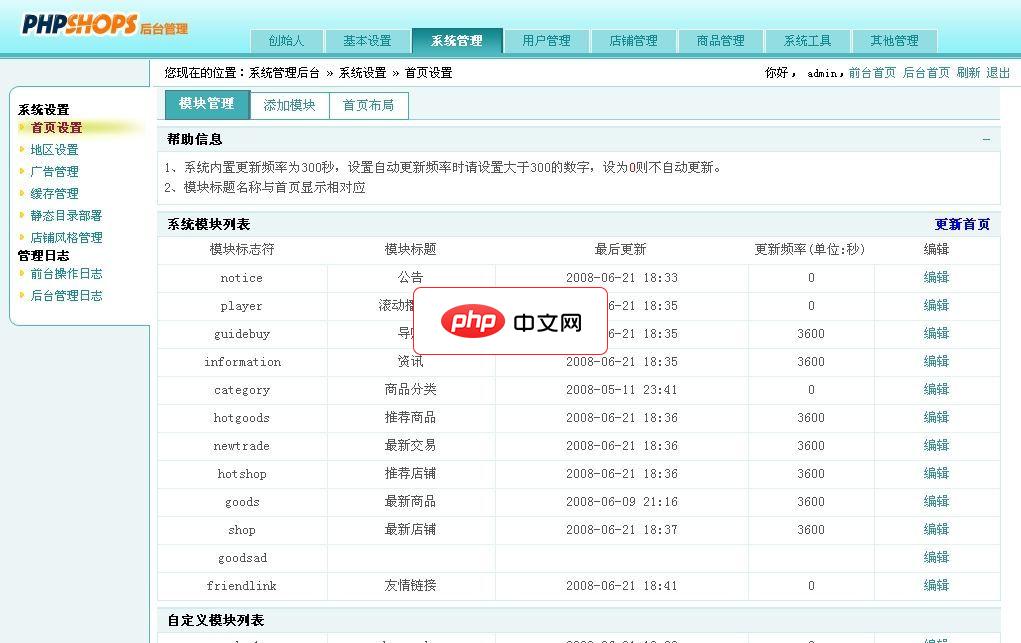代码

随着电子商务模式更加多样化,企业和个人的迫切需求,PHPShops多用户商城系统正可以为其提供专业的电子商务解决方案。社区化电子商务,主要面向行业类和地方门户类站点。 PHPShops多用户商城系统(简称PHPShops)是基于电子商务的一套平台交易系统,它采用目前最流行网站建设工具PHP+MYSQL,实现模版分离技术,通过HTML交互式网页技术来实行客户端与服务器端的交流。无论在
 0
0

use = $use;
}
/**
* convert a string from one UTF-16 char to one UTF-8 char
*
* Normally should be handled by mb_convert_encoding, but
* provides a slower PHP-only method for installations
* that lack the multibye string extension.
*
* @param string $utf16 UTF-16 character
* @return string UTF-8 character
* @access private
*/
function utf162utf8($utf16)
{
// oh please oh please oh please oh please oh please
if(function_exists('mb_convert_encoding')) {
return mb_convert_encoding($utf16, 'UTF-8', 'UTF-16');
}
$bytes = (ord($utf16{0}) << 8) | ord($utf16{1});
switch(true) {
case ((0x7F & $bytes) == $bytes):
// this case should never be reached, because we are in ASCII range
// see: http://www.cl.cam.ac.uk/~mgk25/unicode.html#utf-8
return chr(0x7F & $bytes);
case (0x07FF & $bytes) == $bytes:
// return a 2-byte UTF-8 character
// see: http://www.cl.cam.ac.uk/~mgk25/unicode.html#utf-8
return chr(0xC0 | (($bytes >> 6) & 0x1F))
. chr(0x80 | ($bytes & 0x3F));
case (0xFFFF & $bytes) == $bytes:
// return a 3-byte UTF-8 character
// see: http://www.cl.cam.ac.uk/~mgk25/unicode.html#utf-8
return chr(0xE0 | (($bytes >> 12) & 0x0F))
. chr(0x80 | (($bytes >> 6) & 0x3F))
. chr(0x80 | ($bytes & 0x3F));
}
// ignoring UTF-32 for now, sorry
return '';
}
/**
* convert a string from one UTF-8 char to one UTF-16 char
*
* Normally should be handled by mb_convert_encoding, but
* provides a slower PHP-only method for installations
* that lack the multibye string extension.
*
* @param string $utf8 UTF-8 character
* @return string UTF-16 character
* @access private
*/
function utf82utf16($utf8)
{
// oh please oh please oh please oh please oh please
if(function_exists('mb_convert_encoding')) {
return mb_convert_encoding($utf8, 'UTF-16', 'UTF-8');
}
switch(strlen($utf8)) {
case 1:
// this case should never be reached, because we are in ASCII range
// see: http://www.cl.cam.ac.uk/~mgk25/unicode.html#utf-8
return $utf8;
case 2:
// return a UTF-16 character from a 2-byte UTF-8 char
// see: http://www.cl.cam.ac.uk/~mgk25/unicode.html#utf-8
return chr(0x07 & (ord($utf8{0}) >> 2))
. chr((0xC0 & (ord($utf8{0}) << 6))
| (0x3F & ord($utf8{1})));
case 3:
// return a UTF-16 character from a 3-byte UTF-8 char
// see: http://www.cl.cam.ac.uk/~mgk25/unicode.html#utf-8
return chr((0xF0 & (ord($utf8{0}) << 4))
| (0x0F & (ord($utf8{1}) >> 2)))
. chr((0xC0 & (ord($utf8{1}) << 6))
| (0x7F & ord($utf8{2})));
}
// ignoring UTF-32 for now, sorry
return '';
}
/**
* encodes an arbitrary variable into JSON format
*
* @param mixed $var any number, boolean, string, array, or object to be encoded.
* see argument 1 to Services_JSON() above for array-parsing behavior.
* if var is a strng, note that encode() always expects it
* to be in ASCII or UTF-8 format!
*
* @return mixed JSON string representation of input var or an error if a problem occurs
* @access public
*/
function encode($var)
{
switch (gettype($var)) {
case 'boolean':
return $var ? 'true' : 'false';
case 'NULL':
return 'null';
case 'integer':
return (int) $var;
case 'double':
case 'float':
return (float) $var;
case 'string':
// STRINGS ARE EXPECTED TO BE IN ASCII OR UTF-8 FORMAT
$ascii = '';
$strlen_var = strlen($var);
/*
* Iterate over every character in the string,
* escaping with a slash or encoding to UTF-8 where necessary
*/
for ($c = 0; $c < $strlen_var; ++$c) {
$ord_var_c = ord($var{$c});
switch (true) {
case $ord_var_c == 0x08:
$ascii .= '';
break;
case $ord_var_c == 0x09:
$ascii .= ' ';
break;
case $ord_var_c == 0x0A:
$ascii .= '
';
break;
case $ord_var_c == 0x0C:
$ascii .= '
';
break;
case $ord_var_c == 0x0D:
$ascii .= '
';
break;
case $ord_var_c == 0x22:
case $ord_var_c == 0x2F:
case $ord_var_c == 0x5C:
// double quote, slash, slosh
$ascii .= '\'.$var{$c};
break;
case (($ord_var_c >= 0x20) && ($ord_var_c utf82utf16($char);
$ascii .= sprintf('u%04s', bin2hex($utf16));
break;
case (($ord_var_c & 0xF0) == 0xE0):
// characters U-00000800 - U-0000FFFF, mask 1110XXXX
// see http://www.cl.cam.ac.uk/~mgk25/unicode.html#utf-8
$char = pack('C*', $ord_var_c,
ord($var{$c + 1}),
ord($var{$c + 2}));
$c += 2;
$utf16 = $this->utf82utf16($char);
$ascii .= sprintf('u%04s', bin2hex($utf16));
break;
case (($ord_var_c & 0xF8) == 0xF0):
// characters U-00010000 - U-001FFFFF, mask 11110XXX
// see http://www.cl.cam.ac.uk/~mgk25/unicode.html#utf-8
$char = pack('C*', $ord_var_c,
ord($var{$c + 1}),
ord($var{$c + 2}),
ord($var{$c + 3}));
$c += 3;
$utf16 = $this->utf82utf16($char);
$ascii .= sprintf('u%04s', bin2hex($utf16));
break;
case (($ord_var_c & 0xFC) == 0xF8):
// characters U-00200000 - U-03FFFFFF, mask 111110XX
// see http://www.cl.cam.ac.uk/~mgk25/unicode.html#utf-8
$char = pack('C*', $ord_var_c,
ord($var{$c + 1}),
ord($var{$c + 2}),
ord($var{$c + 3}),
ord($var{$c + 4}));
$c += 4;
$utf16 = $this->utf82utf16($char);
$ascii .= sprintf('u%04s', bin2hex($utf16));
break;
case (($ord_var_c & 0xFE) == 0xFC):
// characters U-04000000 - U-7FFFFFFF, mask 1111110X
// see http://www.cl.cam.ac.uk/~mgk25/unicode.html#utf-8
$char = pack('C*', $ord_var_c,
ord($var{$c + 1}),
ord($var{$c + 2}),
ord($var{$c + 3}),
ord($var{$c + 4}),
ord($var{$c + 5}));
$c += 5;
$utf16 = $this->utf82utf16($char);
$ascii .= sprintf('u%04s', bin2hex($utf16));
break;
}
}
return '"'.$ascii.'"';
case 'array':
/*
* As per JSON spec if any array key is not an integer
* we must treat the the whole array as an object. We
* also try to catch a sparsely populated associative
* array with numeric keys here because some JS engines
* will create an array with empty indexes up to
* max_index which can cause memory issues and because
* the keys, which may be relevant, will be remapped
* otherwise.
*
* As per the ECMA and JSON specification an object may
* have any string as a property. Unfortunately due to
* a hole in the ECMA specification if the key is a
* ECMA reserved word or starts with a digit the
* parameter is only accessible using ECMAScript's
* bracket notation.
*/
// treat as a JSON object
if (is_array($var) && count($var) && (array_keys($var) !== range(0, sizeof($var) - 1))) {
$properties = array_map(array($this, 'name_value'),
array_keys($var),
array_values($var));
foreach($properties as $property) {
if(Services_JSON::isError($property)) {
return $property;
}
}
return '{' . join(',', $properties) . '}';
}
// treat it like a regular array
$elements = array_map(array($this, 'encode'), $var);
foreach($elements as $element) {
if(Services_JSON::isError($element)) {
return $element;
}
}
return '[' . join(',', $elements) . ']';
case 'object':
$vars = get_object_vars($var);
$properties = array_map(array($this, 'name_value'),
array_keys($vars),
array_values($vars));
foreach($properties as $property) {
if(Services_JSON::isError($property)) {
return $property;
}
}
return '{' . join(',', $properties) . '}';
default:
return ($this->use & SERVICES_JSON_SUPPRESS_ERRORS)
? 'null'
: new Services_JSON_Error(gettype($var)." can not be encoded as JSON string");
}
}
/**
* array-walking function for use in generating JSON-formatted name-value pairs
*
* @param string $name name of key to use
* @param mixed $value reference to an array element to be encoded
*
* @return string JSON-formatted name-value pair, like '"name":value'
* @access private
*/
function name_value($name, $value)
{
$encoded_value = $this->encode($value);
if(Services_JSON::isError($encoded_value)) {
return $encoded_value;
}
return $this->encode(strval($name)) . ':' . $encoded_value;
}
/**
* reduce a string by removing leading and trailing comments and whitespace
*
* @param $str string string value to strip of comments and whitespace
*
* @return string string value stripped of comments and whitespace
* @access private
*/
function reduce_string($str)
{
$str = preg_replace(array(
// eliminate single line comments in '// ...' form
'#^s*//(.+)$#m',
// eliminate multi-line comments in '/* ... */' form, at start of string
'#^s*/*(.+)*/#Us',
// eliminate multi-line comments in '/* ... */' form, at end of string
'#/*(.+)*/s*$#Us'
), '', $str);
// eliminate extraneous space
return trim($str);
}
/**
* decodes a JSON string into appropriate variable
*
* @param string $str JSON-formatted string
*
* @return mixed number, boolean, string, array, or object
* corresponding to given JSON input string.
* See argument 1 to Services_JSON() above for object-output behavior.
* Note that decode() always returns strings
* in ASCII or UTF-8 format!
* @access public
*/
function decode($str)
{
$str = $this->reduce_string($str);
switch (strtolower($str)) {
case 'true':
return true;
case 'false':
return false;
case 'null':
return null;
default:
$m = array();
if (is_numeric($str)) {
// Lookie-loo, it's a number
// This would work on its own, but I'm trying to be
// good about returning integers where appropriate:
// return (float)$str;
// Return float or int, as appropriate
return ((float)$str == (integer)$str)
? (integer)$str
: (float)$str;
} elseif (preg_match('/^("|').*()$/s', $str, $m) && $m[1] == $m[2]) {
// STRINGS RETURNED IN UTF-8 FORMAT
$delim = substr($str, 0, 1);
$chrs = substr($str, 1, -1);
$utf8 = '';
$strlen_chrs = strlen($chrs);
for ($c = 0; $c < $strlen_chrs; ++$c) {
$substr_chrs_c_2 = substr($chrs, $c, 2);
$ord_chrs_c = ord($chrs{$c});
switch (true) {
case $substr_chrs_c_2 == '':
$utf8 .= chr(0x08);
++$c;
break;
case $substr_chrs_c_2 == ' ':
$utf8 .= chr(0x09);
++$c;
break;
case $substr_chrs_c_2 == '
':
$utf8 .= chr(0x0A);
++$c;
break;
case $substr_chrs_c_2 == '
':
$utf8 .= chr(0x0C);
++$c;
break;
case $substr_chrs_c_2 == '
':
$utf8 .= chr(0x0D);
++$c;
break;
case $substr_chrs_c_2 == '\"':
case $substr_chrs_c_2 == '\'':
case $substr_chrs_c_2 == '\\':
case $substr_chrs_c_2 == '\/':
if (($delim == '"' && $substr_chrs_c_2 != '\'') ||
($delim == "'" && $substr_chrs_c_2 != '\"')) {
$utf8 .= $chrs{++$c};
}
break;
case preg_match('/\u[0-9A-F]{4}/i', substr($chrs, $c, 6)):
// single, escaped unicode character
$utf16 = chr(hexdec(substr($chrs, ($c + 2), 2)))
. chr(hexdec(substr($chrs, ($c + 4), 2)));
$utf8 .= $this->utf162utf8($utf16);
$c += 5;
break;
case ($ord_chrs_c >= 0x20) && ($ord_chrs_c use & SERVICES_JSON_LOOSE_TYPE) {
$stk = array(SERVICES_JSON_IN_OBJ);
$obj = array();
} else {
$stk = array(SERVICES_JSON_IN_OBJ);
$obj = new stdClass();
}
}
array_push($stk, array('what' => SERVICES_JSON_SLICE,
'where' => 0,
'delim' => false));
$chrs = substr($str, 1, -1);
$chrs = $this->reduce_string($chrs);
if ($chrs == '') {
if (reset($stk) == SERVICES_JSON_IN_ARR) {
return $arr;
} else {
return $obj;
}
}
//print("
parsing {$chrs}
");
$strlen_chrs = strlen($chrs);
for ($c = 0; $c decode($parts[1]);
$val = $this->decode($parts[2]);
if ($this->use & SERVICES_JSON_LOOSE_TYPE) {
$obj[$key] = $val;
} else {
$obj->$key = $val;
}
} elseif (preg_match('/^s*(w+)s*:s*(S.*),?$/Uis', $slice, $parts)) {
// name:value pair, where name is unquoted
$key = $parts[1];
$val = $this->decode($parts[2]);
if ($this->use & SERVICES_JSON_LOOSE_TYPE) {
$obj[$key] = $val;
} else {
$obj->$key = $val;
}
}
}
} elseif ((($chrs{$c} == '"') || ($chrs{$c} == "'")) && ($top['what'] != SERVICES_JSON_IN_STR)) {
// found a quote, and we are not inside a string
array_push($stk, array('what' => SERVICES_JSON_IN_STR, 'where' => $c, 'delim' => $chrs{$c}));
//print("Found start of string at {$c}
");
} elseif (($chrs{$c} == $top['delim']) &&
($top['what'] == SERVICES_JSON_IN_STR) &&
((strlen(substr($chrs, 0, $c)) - strlen(rtrim(substr($chrs, 0, $c), '\'))) % 2 != 1)) {
// found a quote, we're in a string, and it's not escaped
// we know that it's not escaped becase there is _not_ an
// odd number of backslashes at the end of the string so far
array_pop($stk);
//print("Found end of string at {$c}: ".substr($chrs, $top['where'], (1 + 1 + $c - $top['where']))."
");
} elseif (($chrs{$c} == '[') &&
in_array($top['what'], array(SERVICES_JSON_SLICE, SERVICES_JSON_IN_ARR, SERVICES_JSON_IN_OBJ))) {
// found a left-bracket, and we are in an array, object, or slice
array_push($stk, array('what' => SERVICES_JSON_IN_ARR, 'where' => $c, 'delim' => false));
//print("Found start of array at {$c}
");
} elseif (($chrs{$c} == ']') && ($top['what'] == SERVICES_JSON_IN_ARR)) {
// found a right-bracket, and we're in an array
array_pop($stk);
//print("Found end of array at {$c}: ".substr($chrs, $top['where'], (1 + $c - $top['where']))."
");
} elseif (($chrs{$c} == '{') &&
in_array($top['what'], array(SERVICES_JSON_SLICE, SERVICES_JSON_IN_ARR, SERVICES_JSON_IN_OBJ))) {
// found a left-brace, and we are in an array, object, or slice
array_push($stk, array('what' => SERVICES_JSON_IN_OBJ, 'where' => $c, 'delim' => false));
//print("Found start of object at {$c}
");
} elseif (($chrs{$c} == '}') && ($top['what'] == SERVICES_JSON_IN_OBJ)) {
// found a right-brace, and we're in an object
array_pop($stk);
//print("Found end of object at {$c}: ".substr($chrs, $top['where'], (1 + $c - $top['where']))."
");
} elseif (($substr_chrs_c_2 == '/*') &&
in_array($top['what'], array(SERVICES_JSON_SLICE, SERVICES_JSON_IN_ARR, SERVICES_JSON_IN_OBJ))) {
// found a comment start, and we are in an array, object, or slice
array_push($stk, array('what' => SERVICES_JSON_IN_CMT, 'where' => $c, 'delim' => false));
$c++;
//print("Found start of comment at {$c}
");
} elseif (($substr_chrs_c_2 == '*/') && ($top['what'] == SERVICES_JSON_IN_CMT)) {
// found a comment end, and we're in one now
array_pop($stk);
$c++;
for ($i = $top['where']; $i
PHP怎么学习?PHP怎么入门?PHP在哪学?PHP怎么学才快?不用担心,这里为大家提供了PHP速学教程(入门到精通),有需要的小伙伴保存下载就能学习啦!




Copyright 2014-2025 https://www.php.cn/ All Rights Reserved | php.cn | 湘ICP备2023035733号